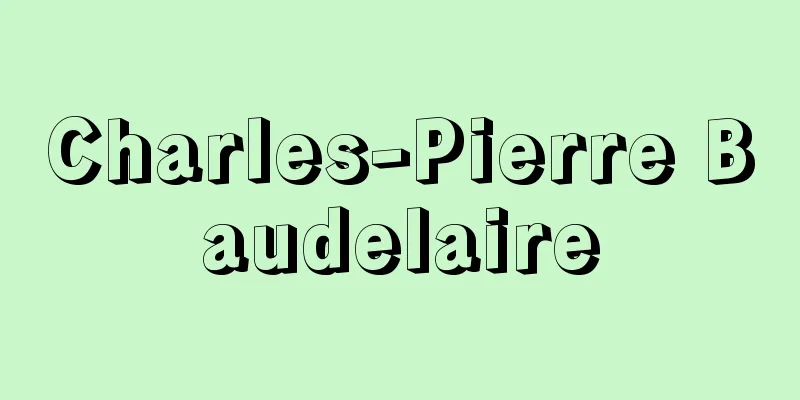Born May 10, 1919, New York. American sociologist. Earned his bachelor's degree from the City University of New York. Edited The New Leader (1939-41), Common Sense (41-49), and Fortune (48-58). After graduating from the University of Chicago and Columbia University, he became a professor at Harvard University. His research focuses on social change and political sociology, but as seen in End of Ideology: On the Exhaustion of Political Ideas in the Fifties (65), he also writes about the post-industrial society of the future. He argued that since politics are no longer driven by ideological passion, it is intellectual technology that drives politics, and that the development of social science technology based on social planning and social indicators is desirable. His theory on post-industrial society has also had a great influence on Japan, as it shows the characteristics of the so-called information society. His major works include The Reforming of General Education (66) and Marxian Socialism in America (67). Bell
Bell, Andrew Born: March 27, 1753, St. Andrews
[Died] January 27, 1832. Cheltenham. Scottish-born clergyman and educator. One of the pioneers of diaconal education. After graduating from university, he went to Virginia, a colony in North America, as a private tutor and made his fortune growing tobacco. He returned to the United States in 1781 and was ordained by the Anglican Church in 1785. In 1787, he went to Madras (→ Chennai), India, where he first introduced diaconal education at an orphanage. This was a system in which bright children were made to teach slower children, and was directly devised as a solution to the shortage of teachers. In 1797, he returned to London and published An Experiment in Education, Made at the Male Asylum of Madras. In 1811, he founded the National Society for Promoting the Education of the Poor in the Principles of the Established Church, and worked to put into practice the educational techniques he had invented. He left a large fortune to further education in Scotland. Bell
Bell, Andrew Born: 1726, Edinburgh
[Died] May 10, 1809. Edinburgh. Scottish copperplate engraver. In 1768, he co-founded the Encyclopedia Britannica with printer Colin MacFarquhar. He was born in Edinburgh and lived there all his life. He made a modest living, earning a living by engraving letters, names, and crests on heraldic plates and dog collars. Although he was not highly regarded as an engraver at the time, he is highly regarded today for many of his plates used in the first, second, and third editions of the Encyclopedia Britannica, as well as in William Smellie's English translation of the French Count Georges-Louis Leclerc Buffon's Natural History (1781 and later). Although it is unclear what the arrangement was between Bell and MacFarquhar in producing the Encyclopædia Britannica, it was Bell who wrote to Smellie requesting that he edit the first edition, and he maintained an interest in the Encyclopædia Britannica throughout his life. He and MacFarquhar shared ownership until MacFarquhar's death in 1793, when Bell became sole owner of all the copyright. Bell
Böll, Heinrich Born: December 21, 1917, Cologne
[Died] July 16, 1985. Langenbroich, West German novelist. He worked at a bookstore, but was called up in World War II in 1939. He was wounded four times as an infantryman, and his wartime experiences marked the beginning of his literary career. He received the 1947 Group Prize in 1951, the Büchner Prize in 1967, and was president of the International PEN Club from 1971 to 1974. He was awarded the Nobel Prize in Literature in 1972. As a Catholic author, he enjoyed an extremely wide readership. His debut work, Der Zug war pünktlich (1949), was followed by the collection of short stories Wo warst du, Adam? (51), the novel And Then Nothing Was Said (53), Haus ohne Hüter (House Without a Guardian) (54), Billard um halbzehn (Balloon at Half-past Nine) (59), Ansichten eines Clowns (The Opinion of a Clown) (63), Gruppenbild mit Dame (Portrait with a Lady) (71) and Frauen vor FluBlandschaft (Lady by the River) (85). Bell
Bell, Georg Kennedy Allen Born: February 4, 1883, Hatling Island
Died: October 3, 1958. Leader of the Church of England at Canterbury. Dean of Canterbury Cathedral (1924-29), Bishop of Chichester (29), and Secretary of the British Bishops' Conference (30). When Hitler's persecution of the Jews began, he secured refuge in Britain for Jews and non-Aryan Christians, while working closely with the German Confessing Church, which resisted the Nazi regime. He was also active in the world church movement for many years, serving as chairman of the International Council for Practical Christianity (34-36) and chairman of the Central Committee of the World Council of Churches (48-54). His main works are "Christian Unity, the Anglican Position" (48) and "The Kingship of Christ: the Story of the World Council of Churches" (54). Bell
Bel A unit of measurement for the level of wave energy flow (sound intensity, power, etc.) or amplitude (sound pressure, voltage, etc.). The symbol is B. The unit is named after A.G. Bell. He noted that the attenuation of sound waves and telegraph signals during transmission is logarithmic to the human senses, and defined the level N of flow I as follows:
N = log 10 ( I / I 0 )
I0 is the reference value of the energy flow of the wave. Also, since the energy flow of the wave is proportional to the square of the amplitude, when the reference value of the amplitude is P0 , the level n of the amplitude P is given by the following equation.
n = 2 log 10 ( P / P 0 )
Since the values in bel units are too small, decibels, which are one-tenth of a bel, are mainly used in practice. The energy flow level N decibels and the amplitude level n decibels are given by the following equations:
N = 10 log 10 ( I / I 0 ), n = 20 log 10 ( P / P 0 )
The reference value I 0 , P 0 level is 0 decibels. Bell
Bell, Alexander Melville Born: March 1, 1819, Edinburgh, Scotland, UK
[Died] August 7, 1905, Washington, DC, USA
A British, later American, phonetician and oratory teacher. An authority on phonetics and speech therapy. Father of AG Bell. He lectured on oratory at the University of Edinburgh from 1843 to 1865, and at University College, London from 1865 to 1870. In 1870, he moved to Canada and lectured on linguistics at Queen's College, Kingston, Ontario. Bell's greatest and original academic contribution was the invention of "visible speech," which not only contributed to the teaching of phonetics and oratory, but also played a fundamental role in the development of phonetic alphabets for international languages and graphic symbols for the education of the deaf and mute. His main work was Visible Speech: the Science of Universal Alphabetics (1867). Bell
Bell, Sir Charles Born: November 1774, Edinburgh
[Died] April 28, 1842. North Harrow, Worcester. British physician and anatomist. After graduating from the University of Edinburgh, he devoted himself mainly to the study of anatomy under the guidance of his brother John, but in 1804 he moved to London. In 1814 he worked at the Middlesex Hospital, and devoted himself to medical practice for 22 years. During that time, he went to Brussels in 1815, where he treated war wounded at Waterloo. In 1829 he received the Royal Society Award, was knighted in 1831, and returned to professorship at Edinburgh University in 1836. In 1831 he published New Idea of Anatomy of the Brain, in which he revealed that the anterior root of the spinal nerve is centrifugal and controls movement, while the posterior root is afferent and transmits sensation. This is now known as Bell-Magendie's law, as the French F. Magendie reported the same thing 11 years later. Bell
Bell, Alexander Graham Born: March 3, 1847, Edinburgh, Scotland
[Died] August 2, 1922. Bembley, Canada. American physicist and inventor of the telephone. Son of AM Bell, known as an authority on oratory. Audited at the University of Edinburgh and the University of London, but was mostly self-taught. Taught music and oratory as a school teacher in Elgin. In 1868, he became his father's assistant and worked in London and the United States, but his health deteriorated and he emigrated to Canada (1870). He later opened a school for the deaf in Boston (1872). The following year, he became a professor of speech physiology at Boston University. He was president of the American Geographers Association (1898). During his time in Boston, he researched methods of electrically transmitting sound and invented the magnetic telephone (patented in 1876). He later founded the Bell Telephone Company (the precursor to ATT). He devoted his life to educating the deaf and mute, and also made many inventions and improvements, including the phonograph, telegraph technology, the photophone, and aerial vehicles. Bell
Berr, Henri Born January 31, 1863 in Luneville
[Died] November 19, 1954. French historian, Paris. After graduating from the École Normale Supérieure (Higher Normal School), he qualified to become a university professor and published his dissertation, L'Avenir de la philosophie (The Future of Philosophy), esquisse d'une synthèse des connaissances fondées sur l'histoire. In 1900, he founded Revue de synthèse historique (General Journal of History). In 1920, he founded and supervised a series called L'Évolution de l'humanité (The Development of Mankind), aiming to explore the various aspects of thought and human activity that are reduced to time and space, according to scientific laws. Bell
Bel Babylonian form of Baal, a Semitic word meaning "Lord" and used to refer to a god. It was used as a title for important gods such as Enlil, Marduk, and Asshur. In the Greek translation of the Old Testament, an addition to the Book of Daniel contains the famous story of how, during the reign of King Cyrus of Persia, the prophet Daniel exposed the false claims of the priests of the idol of the god Bel in Babylon (that the image ate the food offered daily in sacrifice) and put an end to their worship. The Bel in question was Marduk. Bel's goddess wife was called Berit. Bell
Bell, Clive Howard [Born] 1881
[Died] 1964
British art critic. He established the form of modern art criticism based on a new view of art inspired by painting. His main work is The Metaphysical Hypothesis (1923). Source: Encyclopaedia Britannica Concise Encyclopedia About Encyclopaedia Britannica Concise Encyclopedia Information |










